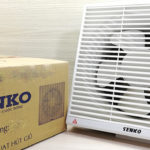During the summer or on extremely hot days, air conditioners are a popular choice for cooling down among families. The cooling process of an air conditioner is carried out by two main components: the indoor unit (evaporator) and the outdoor unit (condenser). The indoor unit is installed inside the house or room, while the outdoor unit is placed outside.
Since the outdoor unit is typically out of sight, issues with it often go unnoticed by users. It is only when the performance of the air conditioner is affected that people start to pay attention to the outdoor unit and discover problems during inspections.
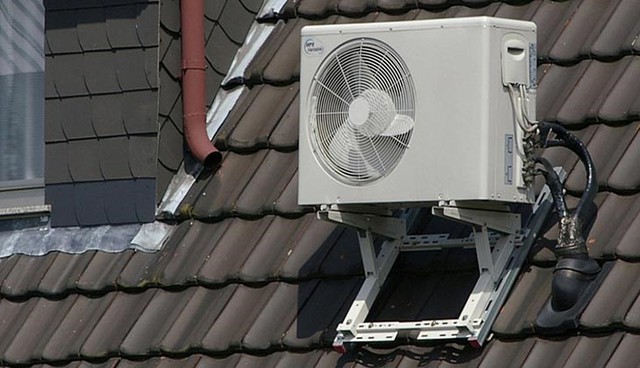
Illustration
One of the signs that something may be wrong is when the outdoor unit of the air conditioner emits loud noises. Many users tend to overlook this, assuming it is a normal part of the air conditioner’s operation. However, in reality, according to experts and experienced technicians in the field of refrigeration, when the outdoor unit produces abnormally loud noises, it is advisable to inspect and fix the issue immediately. This not only ensures the longevity and efficient operation of the appliance but also prevents any inconvenience to your family and neighboring households.
Reasons Why the Outdoor Unit of an Air Conditioner Produces Loud Noises
Specifically, experts have identified four common reasons why the outdoor unit of an air conditioner may emit loud noises during operation.
1. Damage or Loss of Rubber Pads Under the Outdoor Unit
The outdoor unit of an air conditioner is usually placed on rubber pads, which serve the purpose of stabilizing the unit and reducing noise. These rubber pads help to dampen the vibrations and make the operation of the outdoor unit quieter. When the unit suddenly produces loud noises or even strong vibrations, it is highly likely that these rubber pads have been damaged, worn out, shifted from their original position, or completely lost. Experts consider this to be the most common scenario.
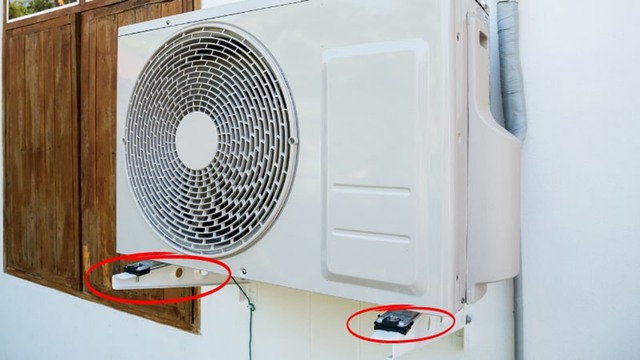
Illustration
Since the outdoor unit is exposed to the elements, including rain, storms, and strong winds, it is inevitable that the rubber pads will be affected over time. The solution in this case is simple: users just need to purchase new rubber pads and place them correctly under the unit.
2. Lack of Regular Cleaning and Maintenance of the Outdoor Unit
Again, due to its outdoor location, the condenser unit is susceptible to accumulating dust and dirt over time. Leaves and other debris can also get stuck in the unit, especially in the fan area, causing operational issues. As a result, the unit may produce annoying noises or even get jammed.
Experts recommend regular cleaning and maintenance of the outdoor unit to prevent this issue. Depending on the usage frequency, it is advisable to clean and service the unit every 6-12 months.
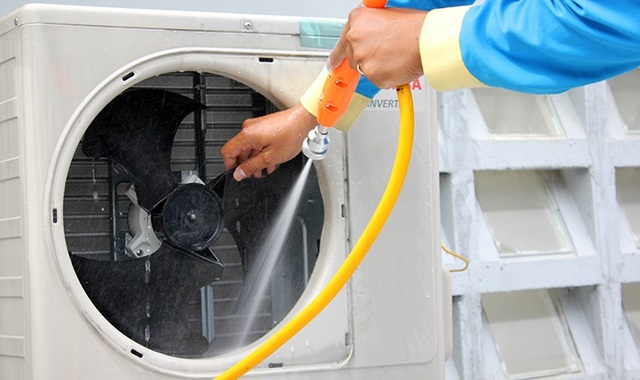
Illustration
3. Presence of Foreign Objects in the Outdoor Unit
The third reason is similar to the second one. Due to a lack of regular cleaning and inspection, foreign objects such as large pieces of debris, branches, or even animals and insects may find their way into the outdoor unit, obstructing the fan and causing loud noises.
4. Issues with the Outdoor Unit’s Fan
The fan is arguably the most crucial component of the outdoor unit, as it ensures the smooth expulsion of hot air. Problems with the fan can include misalignment from the center of gravity, loose fittings, lack of lubrication, or cracks and fractures. When the outdoor unit operates with a malfunctioning fan, the vibrations and noises are amplified. Moreover, experts warn that if left unattended for an extended period, the loose fan could lead to electrical shorts and fires due to the potential for the fan to fall out and get stuck within the unit.
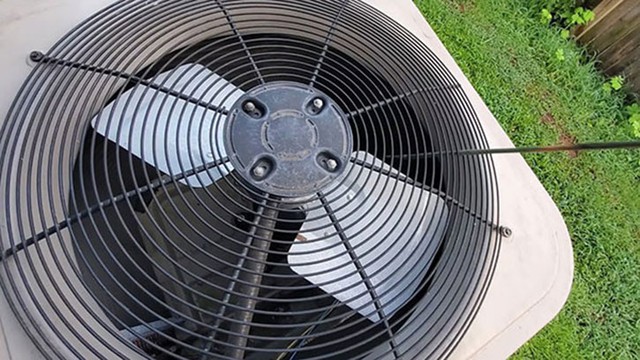
Illustration
Regardless of the cause, it is advisable to stop using the air conditioner and seek professional assistance when you notice that the outdoor unit is making louder-than-usual noises. Do not attempt to inspect or repair the outdoor unit on your own unless you have the necessary knowledge and experience.
Exploring the Pros and Cons of Sleeping in an Air-Conditioned Room
Is sleeping with an air conditioner a good idea? As concerns over the adverse effects of air conditioning on our health increase, it’s important to understand the risks and rewards of using air conditioning while sleeping. Let’s examine the benefits and drawbacks of sleeping with an air conditioner, and the protective measures one should take.
How to Maximize Air Conditioning Comfort for Babies in the Home
Having a new baby in the home brings many considerations and responsibilities, none more important than making sure the baby is safe and healthy. One way to achieve this is proper air conditioning usage. Read on for helpful tips on how to make the best use of air conditioners to keep your newborn safe.
























